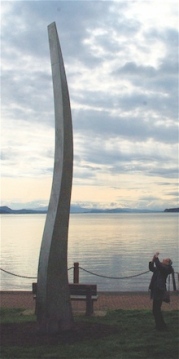“Imagining multi-roles in Web 2.0 Distance Education” is the title of a chapter that I have written with my colleague, BJ Eib for the George Veletsianos (Ed.) book to be published in early 2010 by Athabasca University Press titled:
Emerging Technologies in Distance Education
We have just finished this work, which was started about a year ago…. and the big questions in our minds at the beginning have grown over the past few months. Our initial premise was related to ideas from Clay Shirky, Charles Leadbeater (and others) but turned to shed some light on Web 2.o possibilities in distance education, something that BJ and I have in our lives on a daily basis. As we’re working more and more with the new tools, our excitement is growing and we see it in our colleagues and friends as well.
“Are we experts and amateurs, audience and authors, learners and educators– all at the same time? Perhaps Web 2.0 and our ‘role(s)’ in distance education are causing us to reinvent ourselves.”
I’ll certainly be using this blog to point to more information about the book (which I understand will be offered as an online book as well as in print) when it becomes available.



 Posted by Elizabeth Wellburn
Posted by Elizabeth Wellburn 